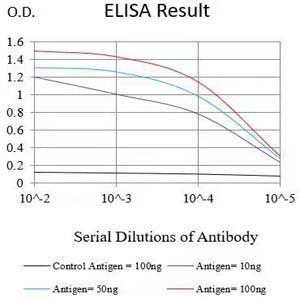
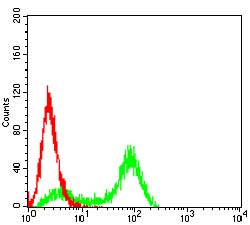
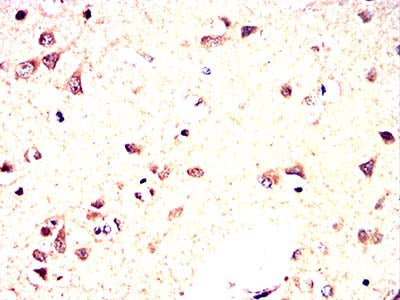
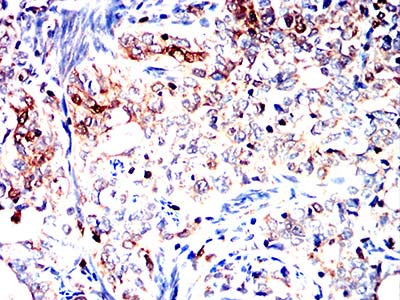
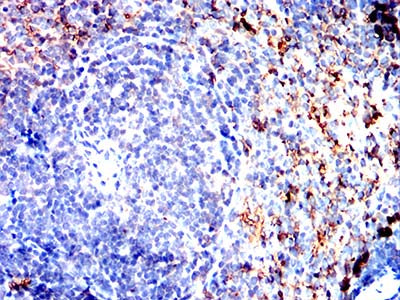
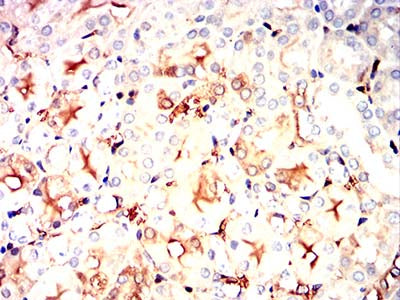
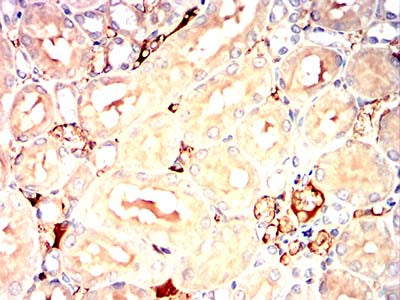
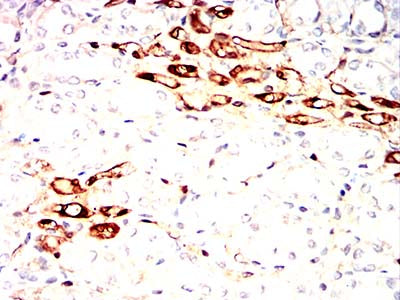
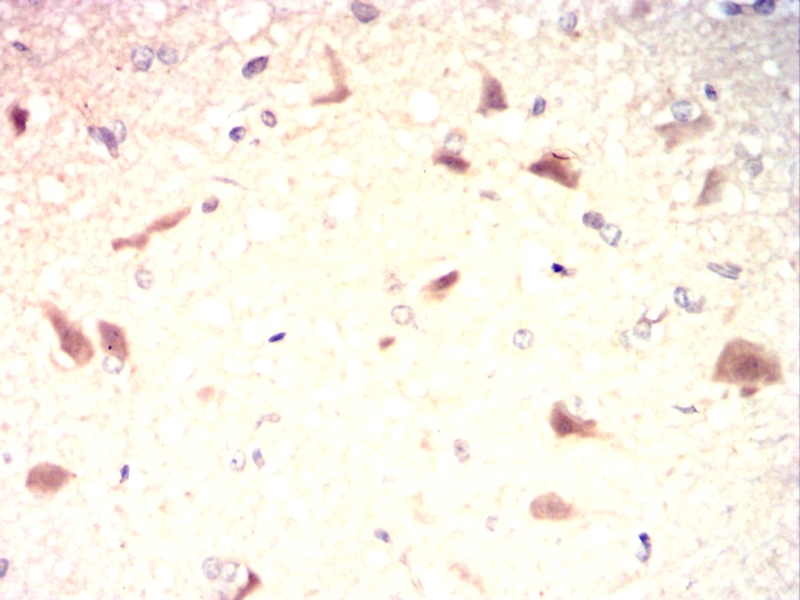
| WB | 咨询技术 | Human,Mouse,Rat |
| IF | 咨询技术 | Human,Mouse,Rat |
| IHC | 1/200 - 1/1000 | Human,Mouse,Rat |
| ICC | 技术咨询 | Human,Mouse,Rat |
| FCM | 1/200 - 1/400 | Human,Mouse,Rat |
| Elisa | 1/10000 | Human,Mouse,Rat |
| Aliases | 42A; 18A2; CAPL; FSP1; MTS1; P9KA; PEL98 |
| Entrez GeneID | 6275 |
| clone | 4A5A7 |
| WB Predicted band size | 11.7kDa |
| Host/Isotype | Mouse IgG1 |
| Antibody Type | Primary antibody |
| Storage | Store at 4°C short term. Aliquot and store at -20°C long term. Avoid freeze/thaw cycles. |
| Species Reactivity | Human, Mouse, Rat |
| Immunogen | Purified recombinant fragment of human S100A4 (AA: 2-101) expressed in E. Coli. |
| Formulation | Purified antibody in PBS with 0.05% sodium azide |
+ +
以下是3篇关于S100A4抗体的代表性文献概览(注:文献信息为模拟示例,实际引用需核实原文):
---
1. **文献名称**:*S100A4 antibody blocks epithelial-mesenchymal transition in metastatic breast cancer models*
**作者**:Smith et al.
**摘要**:研究通过靶向S100A4的单克隆抗体,证明其能抑制乳腺癌细胞的EMT过程,降低小鼠模型中肺转移发生率,提示其作为抗转移治疗的潜力。
---
2. **文献名称**:*S100A4 as a prognostic biomarker in colorectal cancer: immunohistochemical analysis*
**作者**:Wang et al.
**摘要**:利用S100A4抗体对临床结直肠癌组织进行染色,发现高表达S100A4与患者生存率下降显著相关,支持其作为预后标志物的临床应用。
---
3. **文献名称**:*Anti-S100A4 antibody attenuates fibrosis in experimental pancreatitis*
**作者**:Lee & Kim
**摘要**:在小鼠胰腺炎模型中,S100A4中和抗体通过抑制成纤维细胞活化,显著减少胶原沉积,为治疗纤维化疾病提供新策略。
---
如需具体文献,建议通过PubMed或Web of Science以“S100A4 antibody”为关键词检索近年高被引论文。
S100A4. a member of the S100 calcium-binding protein family, is implicated in diverse cellular processes, including proliferation, differentiation, and motility. Primarily expressed in fibroblasts, immune cells, and certain epithelial cells, it is closely associated with cancer progression, particularly metastasis, by regulating extracellular matrix remodeling and epithelial-mesenchymal transition (EMT). Its overexpression in tumors often correlates with poor prognosis, making it a potential biomarker for metastatic risk.
S100A4 antibodies are immunological tools designed to detect and quantify S100A4 protein levels in research and diagnostics. These antibodies, available as monoclonal or polyclonal forms, are widely used in techniques like Western blotting, immunohistochemistry (IHC), and immunofluorescence (IF) to study S100A4's spatial expression, interactions, and functional roles in pathological conditions. Specificity and affinity are critical for distinguishing S100A4 from homologous family members (e.g., S100A1. S100A2).
Beyond oncology, S100A4 antibodies aid in exploring its involvement in fibrosis, chronic inflammation, and cardiovascular diseases. Recent studies also highlight its dual role—intracellularly modulating cytoskeletal dynamics and extracellularly acting as a cytokine via receptor-mediated pathways. Therapeutic strategies targeting S100A4. including neutralizing antibodies, are under investigation to inhibit metastasis or fibrotic pathways, underscoring its translational significance in precision medicine.
×